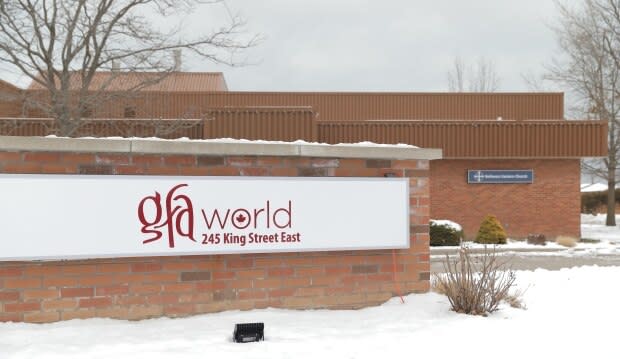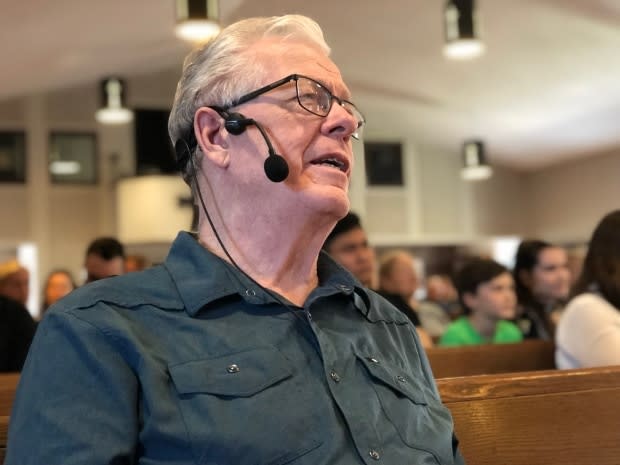Nova Scotia class action against charity Gospel for Asia alleges $100M fraud
After a three-year legal battle south of the border that ignited a major controversy in evangelical circles, the charity Gospel for Asia has now become the focus of a class-action lawsuit filed in Canada.
Plaintiff Greg Zentner of Woodburn, N.S., alleges the charity "defrauded or made negligent misstatements" to him and other donors. The statement of claim also said the "defendants civilly conspired to misrepresent the nature of donations collected."
In other words, Zentner alleges the money raised didn't go where it was supposed to. He is seeking damages for the "misuse of donor funds in excess of $100 million."
The statement of claim was filed in Nova Scotia Supreme Court on Tuesday. Gospel for Asia (GFA) settled a class-action lawsuit in the U.S. with similar allegations last year for $37 million.

GFA has been operating in Canada since 1980. It continues to have strong support and raises about $9 million through donations each year — on average, $25,000 a day. The proceeds are intended to go to the poor in India and surrounding countries.
Some of the most popular gift items include farm animals, bicycles, blankets and drinking wells. Donors also give monthly to support child and missionary sponsorships.
Zentner and his wife donated thousands to GFA between 2006 and 2014. He learned about alleged financial discrepancies through his pastor, Bruce Morrison, who meticulously researched GFA's money trail after hearing from former GFA staff members in the U.S.
As part of a recent CBC News investigation, Morrison and 28 former staff and board members disclosed concerns of how they believe donations have been misused over the years.
Some ex-staff, along with Morrison, uncovered that tens of millions were allegedly sitting in foreign bank accounts and millions more were being held in reserve funds.

Morrison also found that between 2007 and 2014, Gospel for Asia reported to the Canada Revenue Agency (CRA) that it had sent nearly $94 million to India. Meanwhile, financial records submitted to the Indian government showed the charity received no funds from Canada during that time period.
"I suppose the greatest impact I've had, or the greatest thing that has impacted me, is the denial that comes from Gospel for Asia that 'we've done nothing wrong,' when there is so much evidence to the contrary," said Morrison.
Charity disputes allegations
GFA litigation spokesperson Johnnie Moore told CBC in a recent interview the charity is "misunderstood."
"Not only [was GFA] not required to make an admission of guilt when they settled the [U.S.] lawsuit, but had the lawsuit actually continued in the court, they either would have won in court or certainly won on the appeal," Moore said in a recent interview with CBC.

Moore said the allegations made in the U.S. lawsuit were "absolutely false" and the legal settlement proves it.
"It explicitly states that all the funds that … were designated to go to the field went to the field," said Moore.
GFA has not yet responded to the Canadian lawsuit filed on Tuesday.
$20M 'anonymous' donation
Morrison said the U.S. lawsuit provided him with new information about how Canadian money was being spent. In court, lawyers representing Gospel for Asia confirmed that $20 million was taken from Canadian donations to help pay for construction of the charity's $45-million headquarters in Wills Point, Tex.
"They said in the financial statements that were issued in the U.S. [that] … the money had come from an anonymous donor," said Morrison. "And then we find out through court hearings in the United States that this money was Canadian money and donors here had no idea that had happened."
Gospel for Asia confirmed to CBC the money did come from Canadian donations, but said it was later paid back.

In the Canadian court filing, Zentner is seeking the "return of $20 million in funds misdirected to GFA USA."
"The plaintiff states that the transfers were made in order to hide the actual source of the funds and to mislead class members and the Canadian and Indian tax authorities," the document said.
Marc Stanley, the lawyer who represented the plaintiff in the U.S. class-action lawsuit, is named as legal counsel on the statement of claim along with Halifax lawyer John McKiggan.
MORE TOP STORIES


